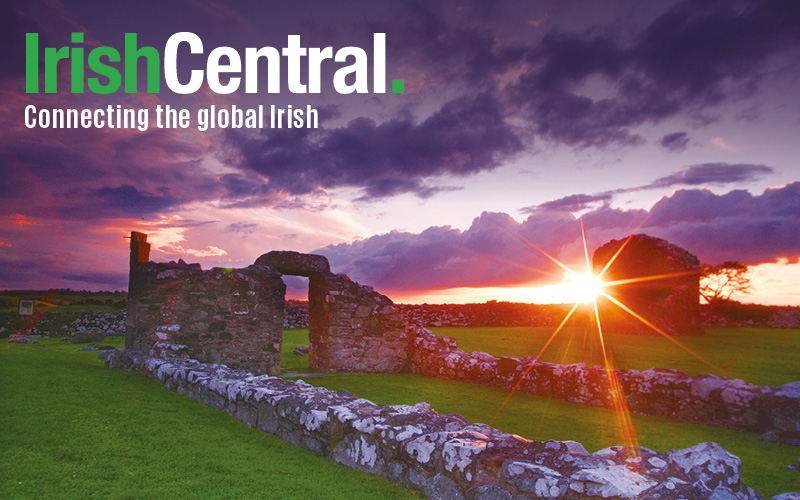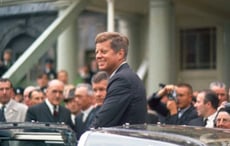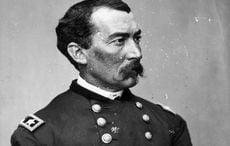I left for America on June 14, 1979, catching an Aer Lingus plane to Chicago, where I had signed up to play Gaelic football for a team in exchange for a job. It was meant to be for a summer. That will be 37 years ago next week.
The journey took unexpected turns as the road took me to San Francisco and later New York. I don't regret a minute of it, living the emigrant dream in so many ways.
People still ask me if I miss Ireland and I say “I do.” Fundamentally I miss family and Ireland is where I’m from. I have six siblings and I have missed much of my nephews' and nieces' lives, wonderful kids all, now well into adulthood.
I know they grew up in a more open, vibrant Ireland than the closed society I left and also that they have the same wanderlust. One is here, in Boston, another in Dubai, another in London. It is almost like Irish kids have a GPS implanted in their brains showing them the way around the great big world.
But Ireland is an exciting country now: the same sex marriage referendum, the opening to the world, the emergence of a vibrant, young generation was an exciting time to live through. Peace in the North is perhaps the greatest gift of all, made possible in part by America, which is very gratifying to me.
I love this time of year there with the promise of spring and a long summer stretching ahead. The countryside never looks better than when the days are lengthening and the winter days of January and February are a receding memory.
I miss the GAA games most of all now that the championship has started. It really is the one indelible Irish institution untouched by scandal and seemingly growing in strength year after year. The games are all televised but that is relatively recent.
Growing up we huddled around the old-fashioned radio with the dial turned to Athlone and marveled as the booming voice of Michael O'Hehir transported us to Kerry or Cork or Croke Park to hear the big game. Those were exotic locales back then. Years later, I played in Croke Park on a few occasions and it was like entering Valhalla. Once, after a Leinster minor final (u/18s), I was asked for my autograph. I felt ten-feet tall.
My father was a fanatical Kerryman and during a Kerry game you risked life and limb interrupting him. He suffered his first heart attack during a Kerry game and went off to hospital in an ambulance with an old transistor radio still glued to his ear.
I loved the lazy Sundays, although mass was a requirement. Afterwards the family would stroll outside, usually with a baby or two in prams (as we called strollers then), along the Killinan Road when we lived in Tipperary, and along the banks of the Boyne when we moved to Drogheda where my Dad had got a new teaching job.
Even back then I had a vague sense of wanting to be somewhere else, somewhere closer to the center of buzz and banter. Now I'm sure I’d love to be back there in a bucolic setting, picking wildflowers and weeds and blackberries and poison mushrooms, racing each other to the nearest landmark, and enjoying an innocence and fun that barely lasted.
My mother, the most mild-mannered woman imaginable, cared for seven kids the old-fashioned way, with maternal love that made us all feel cherished. She was constantly helping people: neighbors, family, friends. My father was old-school Irish and fiercely nationalist. The main arguments they had were over Eamon de Valera, then as now, the longest shadow looming over Irish history.
Today, much of that old element is still alive in Ireland, in the landscape and the people in what Daniel Corkery called “The Hidden Ireland.” Sure the modern world has intervened, but in country areas especially, you can pass the time of day with friends, watch the sun go down and be home for a mighty tea, as dinner was called then, with a trip to 'the local' when older.
Before my time there were the rambling houses where people gathered at the same location and told stories all night. I’d love to have witnessed that. My father wrote about ghost stories that were told so powerfully he would have his bicycle ready in order to flee home.
All my siblings seem in good health thankfully. Three have now retired and by all accounts are handling the slowdown very well indeed.
The education and the home life I got in Ireland was second to none. Sure, talking about the big issues of the day, life was constrained and very difficult for many. For me, it was a wonderful interlude in times that are gone forever.
“Gray's Elegy” written in 1751 evokes the old, old world like no other piece of literature. He recalls a previous time now gone by symbolized by a ruined home he passes.
“For them no more the blazing hearth shall burn,
Or busy housewife ply her evening care:
No children run to lisp their sire's return,
Or climb his knees the envied kiss to share.
But other generations make their own memories and these times now will be the good old time some day for our kids.”
Plus ça change.




Comments